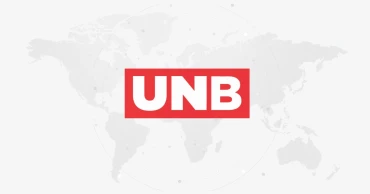private borrowing
Rationalize public sector borrowing to encourage private borrowing: DCCI President
President of Dhaka Chamber of Commerce and Industry (DCCI) Barrister Md. Sameer Sattar said on Sunday that a contractionary Monetary Policy Statements (MPS) will help to revive the financial and private sectors.
The MPS primarily aims to curb inflation by reducing the aggregate demand in the economy, continuing supply-side interventions and a stable and favourable business environment, he said in response to the declared Monetary Policy for the first half of the fiscal year 2023-24 (July-December 2023) by the Bangladesh Bank.
The repo and reverse repo have been adjusted to 6.5% and 4.5% respectively to control inflation by reducing the money supply.
However, the effectiveness of these instruments of controlling inflation is yet to be seen. Because reverse repo was raised earlier but inflation did not decline as expected.
Read: NBR-private sector partnership crucial to achieve high revenue target: DCCI President
MPS showed that the lending rate cap of 9% has been lifted. However, the lending rate will be determined based on a new policy termed as “Short-Term Moving Average Rate (SMART)”.
As a result, the interest rate on bank loans may reach double-digit which may trigger manifold challenges for the survival of businesses in the current volatile geo-economic situation as well as provoking inflation. Lifting the cap of lending rate and introducing the SMART policy may also increase the cost of doing business for CMSMEs.
The public sector credit growth has been set at 43% for July-December of FY24, which was 40% in January-June of FY23. On the other hand, the private sector credit growth has been set at 10.9% for July-December of FY24, which was 11% in January-June of FY23. It is apparent that private sector credit growth has slowed down due to the current geo-economic uncertainty.
Read: DCCI urges industrialists to setup factories in EZs for uninterrupted power supply
DCCI President believes that the target set for public sector credit may limit the scope for private sector borrowing.
“To reduce public sector borrowing, efficiency and good governance must be ensured by adjustment in government spending through austerity measures, rationalization of government expenses and prioritization of development projects,” he said.
He also underscored enhancing tax revenue to reduce the public sector borrowing from the banking sector.
Regarding exchange rate stability, Barrister Sattar agrees that a unified exchange rate will stabilize the market. However, strong monitoring should be in place by the Bangladesh Bank so that it is properly maintained.
Read: Bangladesh economy is growing to offset global challenges: Speakers tell DCCI seminar
Reduction of ERQ encashment limit to 50% and increase of interest of EDF to 4.5% are necessary moves to mitigate the foreign exchange challenges.
To enhance remittance inflow in the country, Bangladesh Bank needs to be very stringent to discourage the informal channel of inward remittance like Hundi.
Barrister Sattar was hoping for solid recommendations from the Bangladesh Bank to deal with Non-Performing Loans (NPLs).
This is because maintaining low NPLs and ensuring good governance in banks and financial institutions are critical for maintaining financial sector stability.
"We hail Bangladesh Bank and the Government of Bangladesh for the formation of a committee to review the existing Bank Company Act 1991 to propose effective resolution to the growing NPLs,” he said.
Since growing NPLs is limiting the private sector credit and in turn, stalling private sector growth, Barrister Sattar feels that stern measures for quick loan recovery should be brought into place.
In connection, he said, Bangladesh Bank can identify and pinpoint the exact reasons, focusing on habitual defaulters, and start engaging with various institutions and stakeholders in order to work towards reducing the current backlog in recovery cases along with quick reforms to introduce ADRs in an effective manner.
2 years ago

